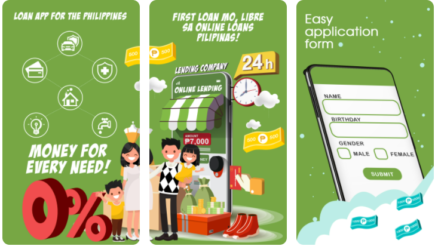Online loans have transformed how Filipinos access credit. With just a smartphone and internet connection, it’s now possible to apply for a loan and receive funds within minutes – without setting foot in a bank. Whether you’re dealing with medical emergencies, home repairs, or cash flow problems for a small business, digital lending offers a fast and flexible financial lifeline.
But behind this convenience lies a growing threat. Alongside the rise of legitimate lending platforms, scam apps and illegal loan sharks have found new ways to exploit unsuspecting borrowers. These bad actors use deceptive marketing, hidden charges, and harassment to trap people in cycles of debt.
That’s why every borrower in the Philippines needs to go beyond surface-level convenience. Knowing how to spot a legal lender – and avoid a fraudulent one – is crucial for your financial safety. This 2025 guide outlines everything you need to know about safe, legitimate online borrowing in the Philippines.
Why Online Loans Are Popular – And Risky
Online lending apps offer several advantages:
- Minimal documentation
- Quick approval times
- Direct transfer to e-wallets or bank accounts
- Accessibility even in rural areas
Unfortunately, these same benefits can also open the door to abuse. Many fraudulent apps mimic the look and feel of legitimate ones, making it harder to tell the difference. Some users discover too late that they’ve signed up with an illegal lender – only after being charged abusive fees or harassed over repayments.
Here are the most common risks associated with unlicensed online lenders:
- Sky-High Interest Rates: Illegal lenders often charge daily interest, which compounds quickly, leading to a ballooning repayment amount.
- Privacy Violations: Many apps harvest sensitive data such as your contacts, messages, and photos – then use this information to publicly shame or threaten you.
- Abusive Collection Practices: Harassment, blackmail, and public shaming are widespread tactics among illegal lenders.
- No Legal Protection: If you deal with an unregistered lender, you’ll have little or no recourse when things go wrong.
To protect consumers, government agencies like the Securities and Exchange Commission (SEC) and the National Privacy Commission (NPC) are cracking down on these operations. But the best defense is still a well-informed borrower.
Verify Legitimacy: How to Check If a Lender Is Legal
✅ Check SEC Registration and Certificate of Authority
Every legal lending company in the Philippines must be registered with the SEC and possess a Certificate of Authority (CA) to operate.
How to check:
- Visit the official SEC website.
- Look for the updated list of registered “Lending Companies with Certificate of Authority.”
- Verify the exact name of the company and confirm that their CA is still valid.
- Also check the SEC’s advisory list of blacklisted and unregistered entities – if the lender is on that list, avoid it completely.
Note: Digital banks like CIMB, UnionDigital, and Maya Bank are regulated by the Bangko Sentral ng Pilipinas (BSP). Their legitimacy can be verified on the BSP website.
✅ Check for a Physical Office and Real Contact Info
Even online lenders must maintain a real-world presence.
- Verify their office address via Google Maps or search engines.
- Test their customer support through email or hotline.
- A lack of contact information, or using only generic email addresses and social media pages, is a red flag.
Review Transparency: Know What You’re Signing Up For
Reputable lenders follow Republic Act No. 3765 (Truth in Lending Act), which mandates full disclosure of all loan terms.
📝 Look for a Complete Disclosure Statement
Before you sign anything, the lender should provide a document that clearly outlines:
- Loan amount
- Effective interest rate (EIR), not just the nominal rate
- Itemized fees like processing, late payment penalties, and government taxes
- Total repayment amount
- Exact payment schedule
If the app avoids these details or rushes you into signing, consider that a warning sign.
📊 Watch Out for Excessive or Hidden Fees
The BSP and SEC have started imposing caps on interest rates and fees for small, short-term loans. If a lender charges:
- Daily interest rates
- Exorbitant service fees
- “Insurance fees” or “membership charges” before releasing funds
…you’re likely dealing with an abusive platform. Stick with lenders that clearly state a monthly or annual interest rate, not a daily one.
Protect Your Privacy: Don’t Trade Your Data for Cash
Under the Data Privacy Act of 2012, borrowers have the right to control how their personal information is collected, used, and stored.
🔍 Check App Permissions Before Installing
Many scam loan apps ask for access to:
- Your contact list
- Photos and videos
- SMS and call logs
No legitimate lender needs access to this data. These permissions are often used to intimidate or blackmail borrowers by threatening to expose private information.
Only install apps that ask for reasonable permissions, such as:
- Camera (to scan ID)
- Location (to prevent fraud)
📖 Read the Privacy Policy
Don’t skip the fine print. A trustworthy lender will:
- Clearly state what data they collect
- Explain how they use and protect your data
- Commit to not sharing your data with third parties for harassment or marketing
🔒 Use Secure Apps and Websites
- Make sure the site uses https:// and shows a padlock in the browser.
- Only download apps from official platforms like Google Play or the Apple App Store.
- Check the developer’s name and read user reviews for complaints.
Know Your Rights as a Borrower
Thanks to the Financial Products and Services Consumer Protection Act (RA 11765), Filipino consumers now enjoy stronger legal safeguards when dealing with financial institutions.
You have the right to:
- Clear and complete information about financial products
- Fair treatment – free from threats, discrimination, or harassment
- Data protection, as guaranteed by law
- File complaints with the SEC, BSP, or NPC and expect timely resolutions
- Access financial education to make better decisions
If a lender violates your rights, you can report them to:
- SEC EIPD Division
- BSP Financial Consumer Protection Department
- National Privacy Commission
Scam Warning Signs You Should Never Ignore
Keep an eye out for these common red flags:
🚨 Promises of instant approval without background checks
🚨 Requests for upfront fees before releasing the loan
🚨 Poor grammar and broken English in communication
🚨 Pressure to “apply now or lose the chance”
🚨 No business address, vague website, or app-only operation
🚨 SMS/email loan offers from unknown numbers
If something feels off, trust your instincts – legitimate lenders have nothing to hide.
Final Thoughts: Be a Smart Borrower in the Digital Age
Online loans can be incredibly helpful – when sourced from the right providers. But they can also ruin your finances if you fall into the trap of illegal lenders. The key to borrowing safely in 2025 is knowledge and vigilance.
✅ Always verify SEC registration
✅ Understand loan terms before accepting
✅ Protect your personal data
✅ Exercise your consumer rights
✅ Avoid platforms that use pressure or deception
The digital lending landscape in the Philippines is evolving, and so should the way we approach borrowing. Make informed choices, avoid shortcuts, and borrow only from lenders you can trust.




